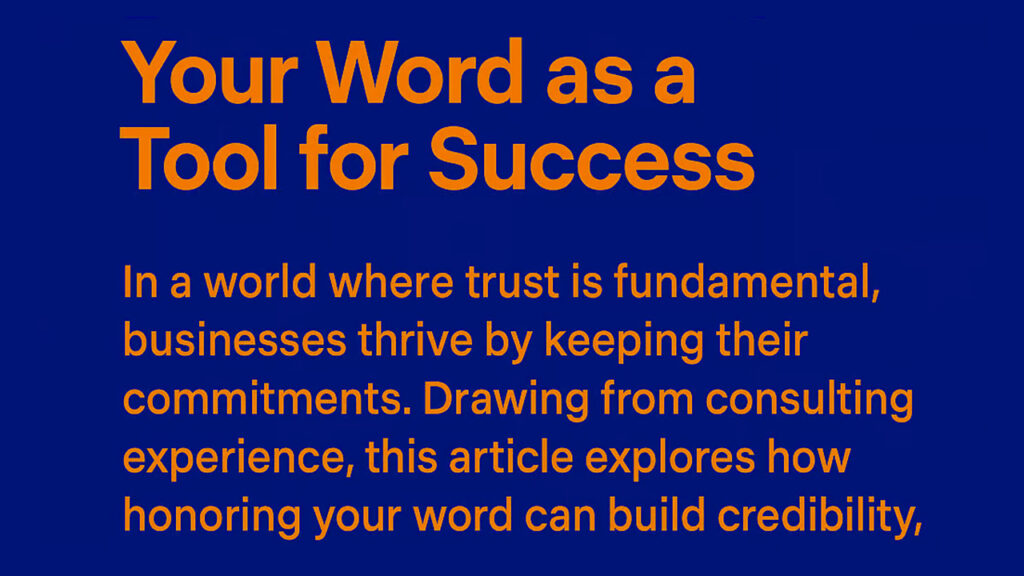
In a world of rapid disruption and endless opportunity, the one quality that continues to differentiate sustainable businesses from fleeting ones is commitment—specifically, the ability to honor your word. No marketing strategy, financial wizardry, or innovation can compensate for broken promises and unreliable leadership. In my over two decades of consulting experience across diverse industries, I’ve consistently observed one golden truth: commitment is currency. When consistently delivered, it yields returns far beyond the balance sheet.
At the core of business lies trust—between founders and investors, clients and service providers, leaders and their teams. Trust is not built in a day, but it can be lost in a single unfulfilled promise. Businesses that commit and follow through foster a culture of accountability and reliability, which leads to client retention, stronger partnerships, and enhanced team performance.
Commitment is not about saying “yes” to everything—it’s about saying “yes” and standing by it.
As a business consultant, I’ve been called in when companies are stuck—growth plateaus, investor confidence wanes, or internal morale plummets. One recurring pattern I see in troubled companies is a disconnect between what leaders say and what they do.
For example, a manufacturing client I once advised made aggressive expansion promises to their distribution partners without aligning the internal supply chain or team capability. When deadlines were missed, partners pulled out. The result? Loss of market credibility, dropped sales, and internal blame games.
After a deep review, we realigned their communication protocols: commitments would only be made post cross-functional feasibility checks. We also introduced a “promise tracker”—a simple dashboard holding leadership accountable for every verbal or written commitment. Within six months, confidence was restored, and the company grew by 18%.
Here are a few consulting strategies that I’ve implemented for clients to embed commitment at every level:
Audit Your Promises: Conduct internal audits not just on operations, but on deliverables. Are you doing what you say you’ll do? Are promises made in boardrooms reflected on the shop floor?
Create a ‘Commitment Culture’: From leadership to entry-level staff, reward consistency and follow-through. Publicly appreciate team members who honor deadlines, commitments, and customer expectations.
Underpromise, Overdeliver: Teach teams the value of setting realistic expectations. It’s better to exceed a modest promise than fail a bold one.
Leadership Accountability: When leaders break their word, it sets a dangerous precedent. I always advise CXOs to model the behavior they want to see—show up when you say you will, respond when expected, and deliver without excuses.
Even the most committed teams will falter occasionally. The difference lies in owning the failure. When commitments can’t be met, communicate early, take responsibility, and offer solutions. In consulting, I always advise clients: delays and mistakes don’t kill businesses—silence and denial do.
Ultimately, your brand isn’t your logo or tagline—it’s what people say about you when you’re not in the room. In business, that reputation is shaped not by what you promise, but by what you deliver—consistently.
As a consultant, I’ve helped companies achieve incredible turnarounds and scale—but the ones who achieve sustainable success are those who build trust, one honored word at a time.
So if you’re looking for the next big growth hack or competitive advantage, start here: mean what you say, and do what you mean.
WhatsApp Me